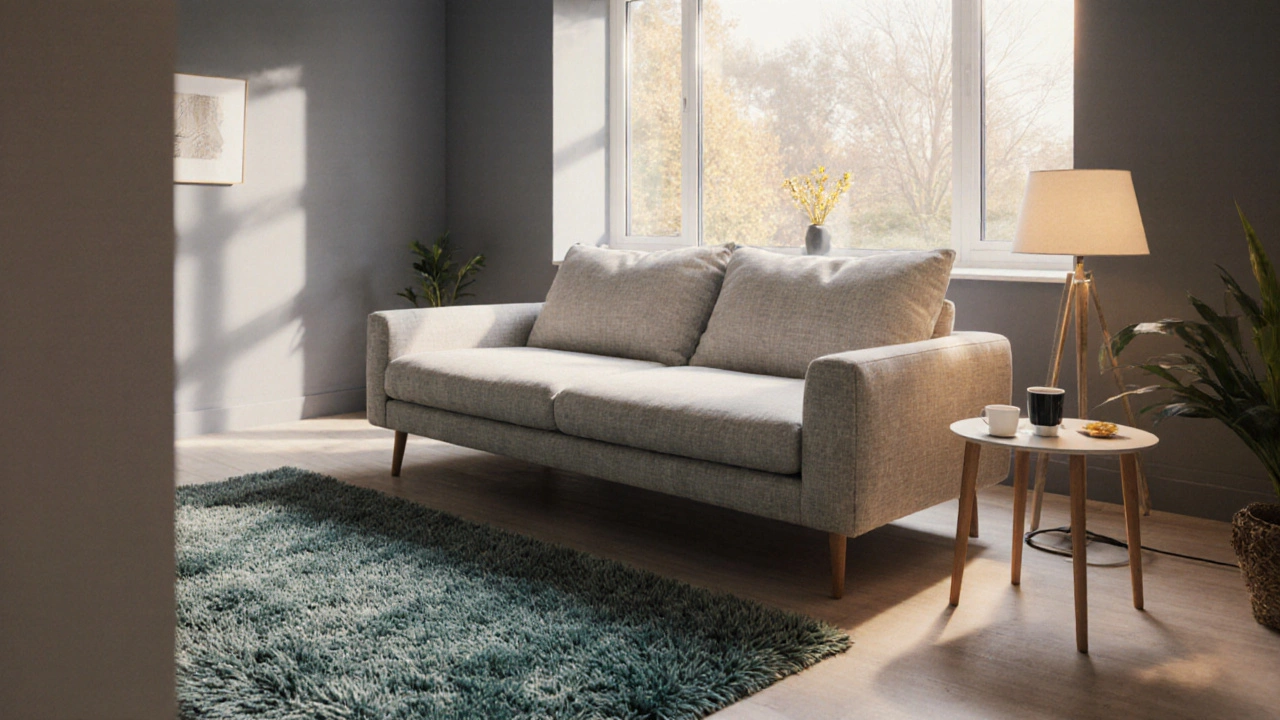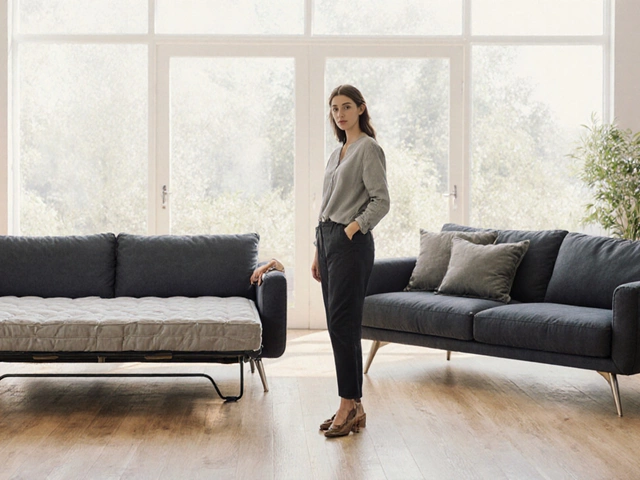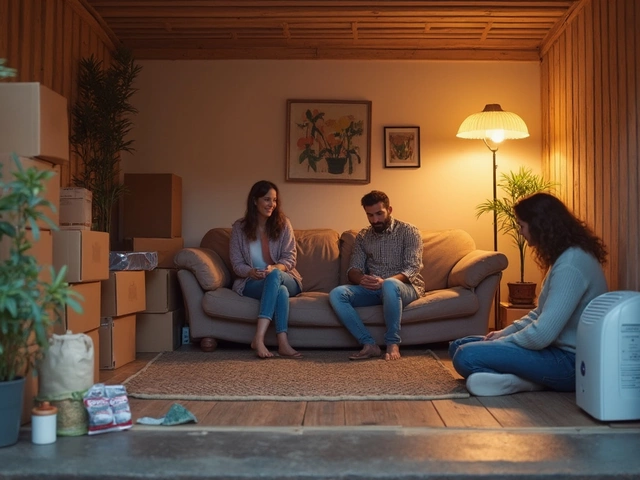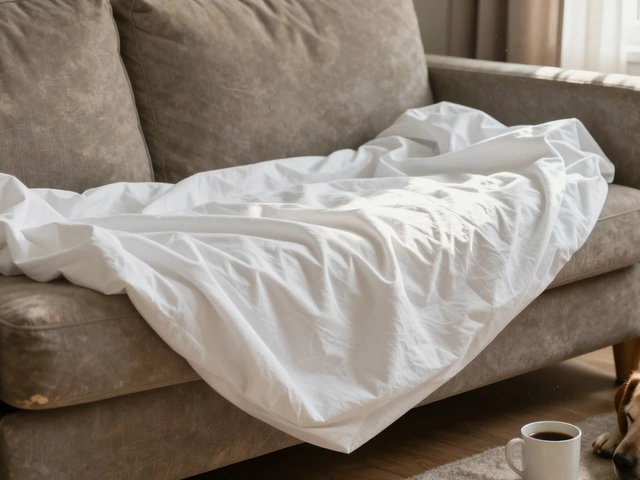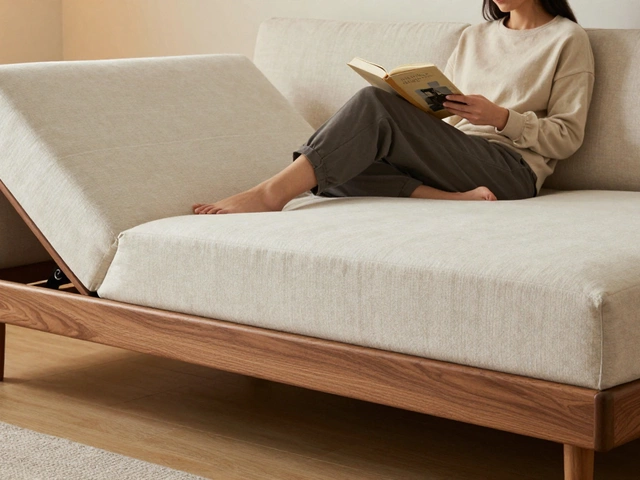Sofa Bed Comfort Checker
Your personalized comfort recommendations will appear here after selecting your preferences.
Finding a sofa that looks good, fits your living room, and actually lets you sleep without a sore back can feel like hunting for a unicorn. This guide breaks down exactly what to look for so you can pick a comfortable sofa bed that works for movie nights, guests, and lazy Sunday mornings.
Quick Takeaways
- Prioritize mattress type - memory foam or pocket‑spring usually wins comfort tests.
- Check the mechanism; click‑clack frames are sturdy, pull‑out styles offer deeper sleep surfaces.
- Match the sofa’s size to your room and the bedroom space you need when it’s opened.
- Choose breathable, durable fabrics like linen or performance blends for long‑term comfort.
- Create a checklist of weight capacity, price range, and warranty before you shop.
What Makes a Sofa Bed Comfortable?
Comfort isn’t just about softness; it’s a blend of support, sleep surface quality, and how the piece behaves when you transition from sit to sleep. The central entity here is Sofa Bed a dual‑purpose piece of furniture that serves as a sofa by day and a bed by night. A good one should feel like a couch with proper back support and a bed that cradles the body without sagging.
Three core pillars drive comfort:
- Mattress composition - determines pressure relief and motion isolation.
- Frame and mechanism - affect stability and how flat the sleeping surface becomes.
- Cushion fill and fabric - influence how the sofa feels when you sit and how the mattress breathes.
Mattress Types and Comfort Levels
The mattress is the heart of a sofa bed’s sleep experience. Below is a quick comparison of the most common types.
| Type | Feel | Support | Breathability | Typical Price Range (USD) |
|---|---|---|---|---|
| Memory Foam high‑density foam that conforms to body shape | Soft, body‑hugging | Excellent pressure relief, slower response | Low to moderate | $300‑$800 |
| Pocket Spring individually wrapped coils that move independent of each other | Responsive, slightly bouncy | Strong support, good edge stability | High - air circulates between coils | $500‑$1,200 |
| Innerspring traditional metal coil system with a thin comfort layer | Firm, less contouring | Solid support but can be noisy | Moderate - depends on coil gauge | $250‑$600 |
For most guests, a pocket‑spring mattress strikes the best balance between comfort and support, especially if you have back issues. Memory foam is great for anyone who wants a plush, hugging feel, but watch out for heat build‑up in warm climates.
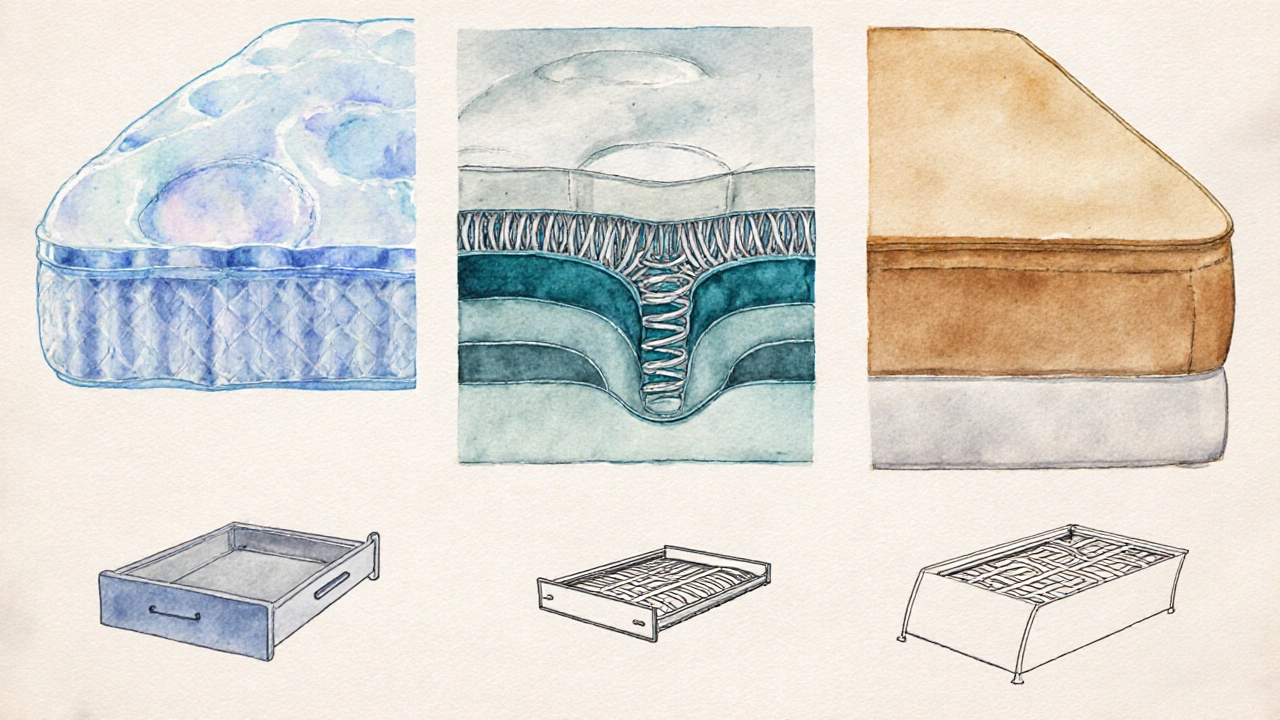
Frame and Mechanism: Stability Meets Convenience
The frame determines how the sofa opens and how flat the mattress ends up. Here are the three most common mechanisms:
- Pull‑Out a drawer‑style mattress that slides out from under the seat - offers a deep sleep surface (often 6‑8 inches) but can be heavy to pull.
- Fold‑Out / Click‑Clack a hinged frame that folds out, creating a flat platform for the mattress - quick to set up, typically less deep (5‑6 inches).
- Convertible the backrest folds down to form the sleeping surface, usually with a thinner mattress - most space‑saving but can feel uneven.
If you plan to use the bed regularly, go for a pull‑out with a sturdy metal frame; it distributes weight evenly and minimizes squeaks. Click‑clack mechanisms are ideal for occasional guests because they’re light and easy to store.
Size and Space: Fit the Room, Fit the Sleep
The size of a sofa bed matters for both living‑room layout and sleeping comfort. Common dimensions:
- Single (Twin) - mattress 38×75in, ideal for studio apartments.
- Full (Double) - mattress 54×75in, fits most guest rooms.
- Queen - mattress 60×80in, best for couples but requires a larger footprint.
Measure the clearance space you’ll need when the sofa is opened. A good rule: add at least 12in of clearance around the mattress for easy access. Also factor in Weight Capacity the maximum load the frame and mattress can safely support. Most mid‑range models hold 250lb per person; premium versions go up to 500lb.
Fabric, Cushion Fill, and Ergonomics
While the mattress determines sleep comfort, the upholstery influences how the sofa feels during the day and how the mattress breathes at night.
- Fabric the outer material covering the sofa frame and cushions - natural fibers like linen and cotton are breathable but may stain; performance blends add stain‑resistance and durability.
- Cushion Fill the stuffing inside the seat and back cushions, often foam or down blend - high‑density foam holds shape longer, while down offers plushness but flattens faster.
- Ergonomic Design contoured backrests and seat depth that promote good posture - look for lumbar support curves and a seat depth of 20‑22in for most adults.
For a sofa bed that stays comfortable year after year, pick a fabric with a tight weave (e.g., microfiber) and cushions with at least 2in of high‑density foam.
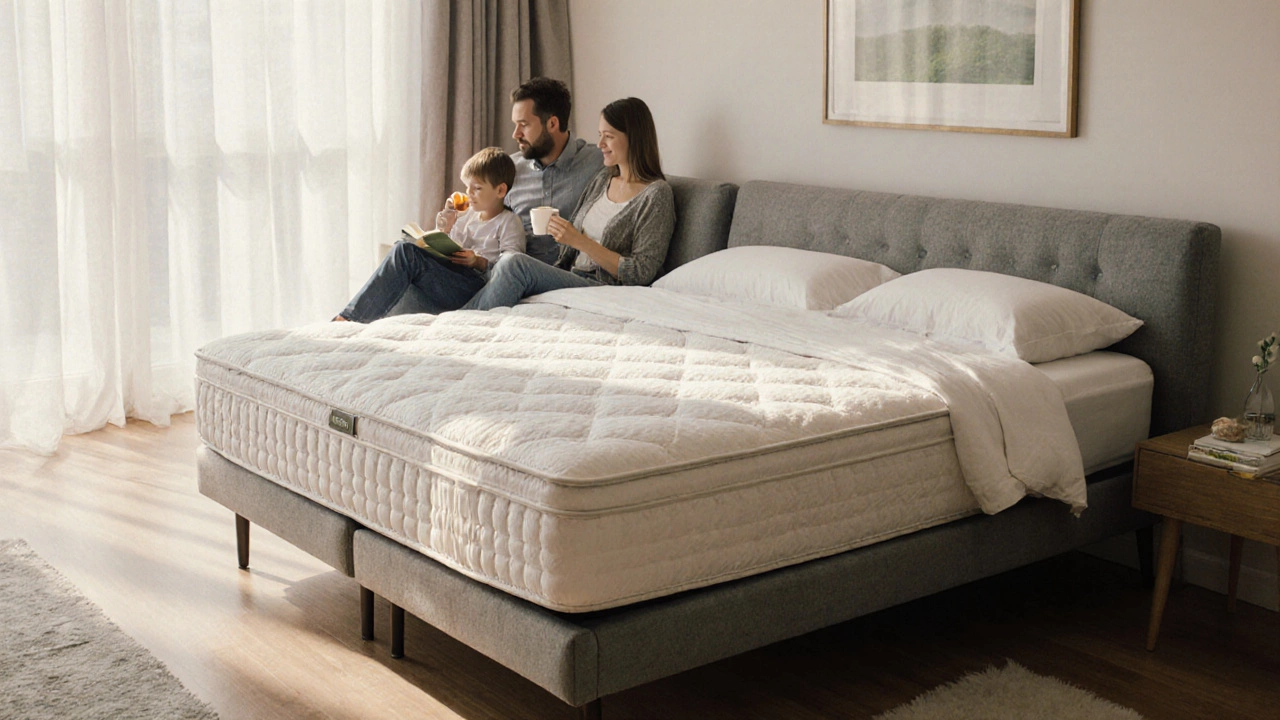
Price vs. Comfort: Getting the Best Value
Comfort usually correlates with price, but you don’t have to break the bank. Here’s a rough budgeting guide:
- Budget (<$600) - thin innerspring mattress, basic fabric, click‑clack mechanism. Good for occasional use.
- Mid‑Range ($600‑$1,200) - pocket‑spring or quality memory foam, sturdy metal frame, performance fabric. Suitable for regular sleepers.
- Premium (>$1,200) - hybrid mattress, premium upholstery (leather or high‑end linen), motorized opening mechanisms, extended warranty. Ideal for daily use.
Read the warranty details; a 5‑year frame warranty and a 2‑year mattress guarantee indicate confidence from the manufacturer.
Final Checklist: Your Sofa Bed Decision Tree
- Determine the primary use (guest‑only vs. regular sleeping).
- Select mattress type based on comfort preference and climate.
- Choose a frame mechanism that matches your strength and space.
- Measure your room and pick a size that leaves walking clearance.
- Pick fabric and cushion fill that balance durability with feel.
- Set a budget, then compare models that meet the above criteria.
When you line up the options against this checklist, the choice becomes clear, and you’ll avoid costly regrets.
Frequently Asked Questions
What mattress thickness is ideal for a sofa bed?
A thickness of 5‑6in provides enough support for most adults, while 7‑8in is better for taller users or those who want a hotel‑like feel.
Can I replace the mattress later?
Yes, most sofa beds have removable mattresses. Just check the model’s dimensions and ensure the new mattress fits the frame’s inner cavity.
How do I keep the fabric from staining?
Choose performance fabrics with a stain‑resistant treatment, and use a removable slipcover. Clean spills immediately with a mild detergent.
Is a pull‑out mechanism harder to move?
Pull‑out sofas are typically heavier because of the solid frame and larger mattress, but the mechanism itself slides smoothly. You may need two people to open it the first few times.
What warranty should I look for?
A minimum 5‑year structural warranty and at least a 2‑year mattress warranty are good benchmarks. Extended coverage often indicates higher build quality.
